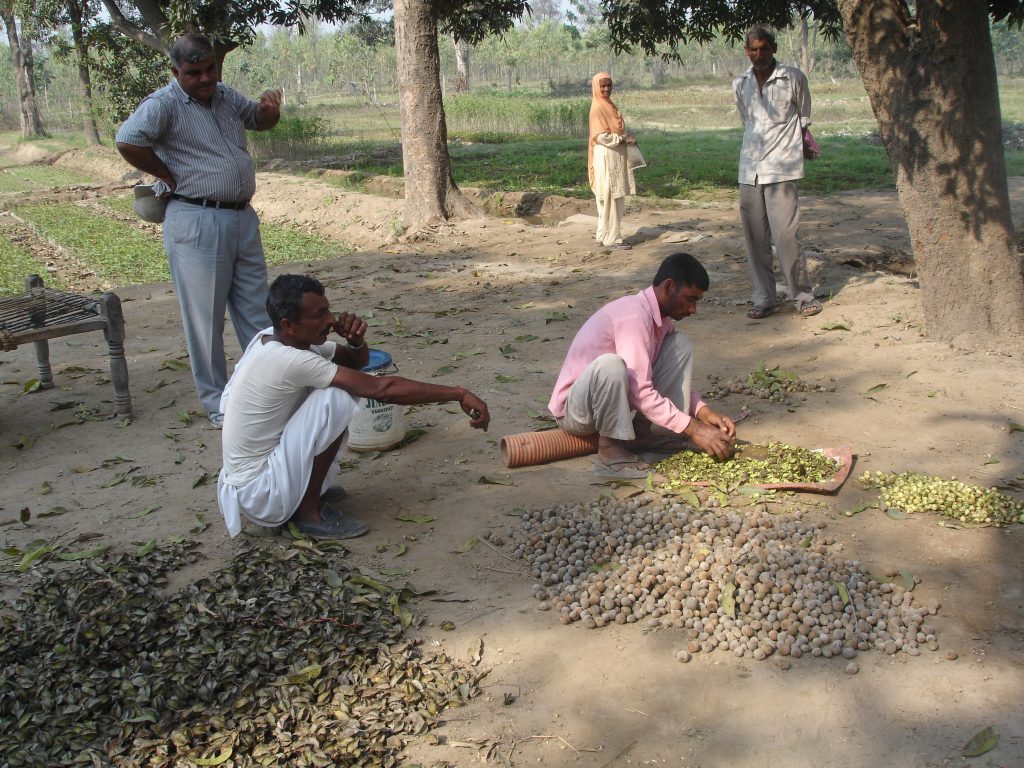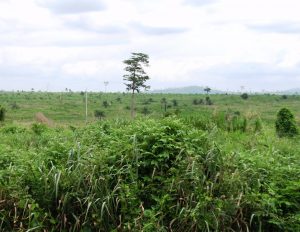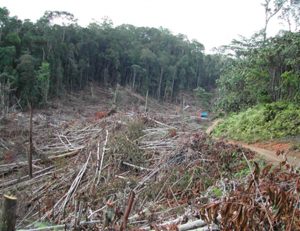Spotlight #82 – More local involvement one key to FLR success
Spotlight #82 – More local involvement one key to FLR success
“What we’ve got here is failure to communicate.”

That classic line from the Paul Newman movie, Cool Hand Luke, has since become a catch phrase to describe situations – some comical, others quite serious – that go awry when people aren’t on the same page.
Used in its more serious sense, that phrase can explain the failure of many Forest Landscape Restoration (FLR) projects.
Read more…IUFRO Spotlight #43: Helping forests and people adapt to changing times and climes
The world’s forests seem beset on all sides.
Rising populations and improved incomes are increasing demands for forest products and services ranging from the traditional – food, fuel and timber – to more recently recognized needs such as biomass, bioenergy, nature conservation, recreation and health, as well as forest biodiversity conservation.

“It is a great challenge to restore forest landscape in largely deforested areas.” Photo: John Stanturf.
At the same time, those rising populations – and changing preferences, such as increased demand for meat and dairy products – lead to forests being cleared to free up land for agricultural and pasture purposes.
Add the other drivers of deforestation and forest degradation, plus increasing temperatures, rapidly altering precipitation patterns and the impacts of continuously growing carbon dioxide concentrations on forest vegetation photosynthesis; and then throw in more extreme weather events that lead to more frequent and intensified droughts and wildfires, the migration of tree pests and diseases – aided by globalization – and one has a global forest under siege. Read more…
Forest Adaptation and Restoration under Global Change – Asian and Oceania Perspectives
Session A-9A (65): Forest Adaptation and Restoration under Global Change – Asian and Oceanian perspectives
27 October 2016, 13:30-15:30; Room 303A
Learn more about the IUFRO Task Force on “Forest Adaptation and Restoration under Global Change”: http://www.iufro.org/science/task-forces/forest-adaptation-restoration/
 This session, organised by the IUFRO Task Force on “Forest Adaptation and Restoration under Global Change”, discussed various aspects of restoring forest ecosystems under conditions found in the Asia and Oceania regions.
This session, organised by the IUFRO Task Force on “Forest Adaptation and Restoration under Global Change”, discussed various aspects of restoring forest ecosystems under conditions found in the Asia and Oceania regions.
In the first presentation, John Stanturf (US Forest Service) explained the potential benefits that forest landscape restoration can have on mitigating as well as adapting to climate change. These included aspects such as diverse species and structures at stand scale; age classes of tree vegetation at landscape scale and connectivity. Read more…
